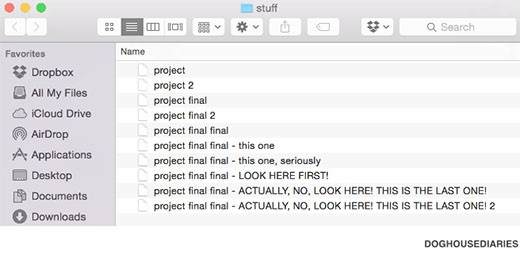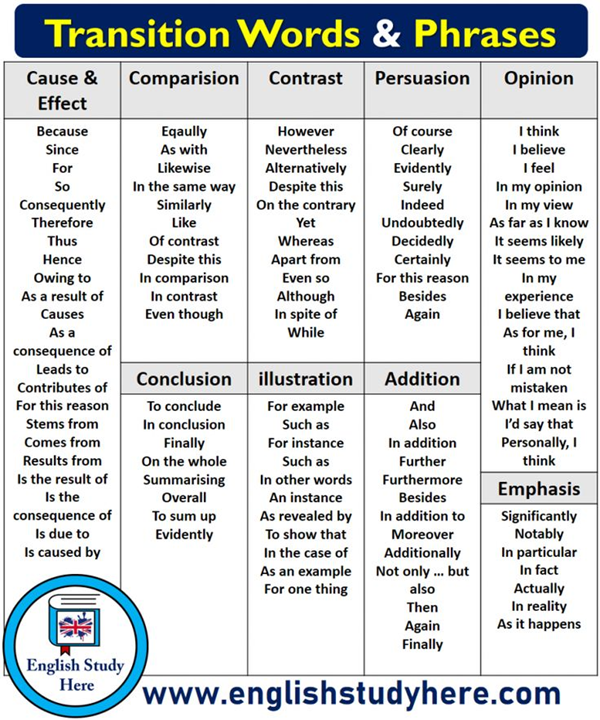Resources for authors
-
@Kilgore I would be curious if you have any experience with Joplin, as compared to Obsidian? I think Obsidian looks better, and after an initial perusing seems to function better than Joplin. But the one glaring issue for me with Obsidian is privacy. My understanding is that it lacks encryption.
-
@Mossy I have tried Joplin a long time ago but didn't like it. Mainly because the lack of features and If I remember correctly it had a weird way to save things where as in obsidian I just make a folder and that's where my things go. I also like that the markdown files are dynamic so they change as soon as I type the next line. Once they add a pdf highlighting feature it will be perfect for me.
I was looking at the Joplin web clipper, but Obsidian came out with theirs just at the right time. I needed to save about 2000 twitter posts from my likes and it made it so much easier. I also played around with training AI on the data I saved (with chat-gpt in obsidian) It owrks decently.
As for privacy. You store your files on your computer and nowhere else. Not sure what you mean by encryption.
-
@Kilgore said in Resources for authors:
@Mossy I have tried Joplin a long time ago but didn't like it. Mainly because the lack of features and If I remember correctly it had a weird way to save things where as in obsidian I just make a folder and that's where my things go. I also like that the markdown files are dynamic so they change as soon as I type the next line. Once they add a pdf highlighting feature it will be perfect for me.
I was looking at the Joplin web clipper, but Obsidian came out with theirs just at the right time. I needed to save about 2000 twitter posts from my likes and it made it so much easier. I also played around with training AI on the data I saved (with chat-gpt in obsidian) It owrks decently.
As for privacy. You store your files on your computer and nowhere else. Not sure what you mean by encryption.
Good information. Thank you.
I can attest that the Joplin web clipper did not work well for me. That was last year, I can guess they've updated it by now.
I am not an expert with encryption, but my understanding is encryption is where your files/data are scrambled and undecipherable until you work with them and then are re-scrambled when closed. There are multiple areas where your data could be vulnerable. If you're only using Obsidian locally, you arguable are pretty safe. If Obsidian on your desktop/laptop syncs with cloud storage, for multi-device access, that is where lack of encryption could be a factor. If you don't mind that your information is available, then it would be a non-issue.
EDIT - DELETE: I'm deleting these links on Obsidian not being encrypted and providing a newer link from Obsidian's blog stating that user data IS encrypted:
"When you use our online services, your data is protected with end-to-end encryption for maximum security."
-
Typora should've been listed. Including another option might encourage editor hopping, but it's worth the mention.
It's comparable to IA Writer, ships with similar features that writers tend to enjoy (such as fully immersive mode, active paragraph highlighter, and fixed-height typing) while being more customizable. Obsidian is superior in capabilities to both, but Typora would be a good alternative to consider for people who are after simpler solutions.
Just like Obsidian and Zettlr, it's available on Linux too.
"Quartz effectively turns your Markdown files and other resources into a bundle of HTML, JS, and CSS files (a website!)."
Short link to PubMed:
-
Had not heard of Typora before. Thank you.
-
Dark Mode Vogue: Do light-on-dark displays have measurable benefits to users?
"Tasks involving search, reading, proofreading, object detection, discrimination, adjustment, visual performance, and lexical decision have been used to evaluate screen polarity (see Table 1 in Appendix A). Regardless of the type of task, most research has found evidence for a positive polarity [dark-on-white] advantage. These studies reveal higher readability ratings (Hall & Hanna, 2003), better reading comprehension (Wang et al., 2003), better proofreading performance (Buchner & Baumgartner, 2007; Piepenbrock et al., 2013; Piepenbrock, 2014), higher discrimination (Mayr & Buchner, 2010), improved visual acuity (Piepenbrock et al., 2013), and increased legibility (Dobres et al., 2016) in the positive polarity condition. Only one study, using an identification task to test reading performance in a dark environment, found that response time was shorter in the negative polarity condition (Rempel, 2012). However, other factors such as the degree of darkness (ambient illumination) could have led to this result."
"As smaller pupil size allows for a better perception of detail, the authors confirmed that proofreading performance was better with positive than with negative polarity displays (Piepenbrock et al., 2014)."
The Effect of Ambient Illumination and Text Color on Visual Fatigue under Negative Polarity
Desktop lighting for comfortable use of a computer screen
Display considerations for night and low-illumination viewing
-
On Writing | Brandon Sanderson
What Program Do You Use To Organize Your Writing?
Microsoft Word for the writing itself (using Word's Outline mode), and WikiDPad for the series bible.
What font do you usually use?
Courier 12 pt double spaced
It can be difficult to find agreeable monospaced fonts, but Fira Code and Geist Mono are good examples.
Obsidian developers listed the different possibilities to sync files:
-
An Efficiency Comparison of Document Preparation Systems Used in Academic Research and Development
"The choice of an efficient document preparation system is an important decision for any academic researcher. To assist the research community, we report a software usability study in which 40 researchers across different disciplines prepared scholarly texts with either Microsoft Word or LaTeX. The probe texts included simple continuous text, text with tables and subheadings, and complex text with several mathematical equations. We show that LaTeX users were slower than Word users, wrote less text in the same amount of time, and produced more typesetting, orthographical, grammatical, and formatting errors. On most measures, expert LaTeX users performed even worse than novice Word users. LaTeX users, however, more often report enjoying using their respective software. We conclude that even experienced LaTeX users may suffer a loss in productivity when LaTeX is used, relative to other document preparation systems. Individuals, institutions, and journals should carefully consider the ramifications of this finding when choosing document preparation strategies, or requiring them of authors."
Human interfaces to structured documents
-
Participants were allowed to use all tools, editors, plug-ins, and add-ons that they were accustomed to using with their respective software. For example, many LaTeX users produce documents with external text editors such as TeXnicCenter, LaTeX Editor, Kile, or WinEdit because LaTeX does not offer an internal text editor.
Regarding LaTeX, Overleaf might be a better contender.
-
Ray was into linguistics, likely preventing him from overusing this triad pattern. Yet, you can still find it in many of his titles, making them appear well-rounded and memorable.
- Adaptive substance, creative regeneration: Mainstream science, repression, and creativity
- Aging Eyes, Infant Eyes, and Excitable Tissues
- Aging, estrogen, and progesterone
- Aspirin, brain and cancer
- Bleeding, clotting, cancer
- Diabetes, scleroderma, oils and hormones
- Estrogen, memory and heredity: Imprinting and the stress response
- Estrogen, progesterone, and cancer: Conflicts of interest in regulation and product promotion
- Fatigue, aging, and recuperation
- Gelatin, stress, longevity
- Genes, Carbon Dioxide and Adaptation
- Glycemia, starch, and sugar in context
- Growth hormone: Hormone of Stress, Aging, and Death?
- Hot flashes, energy, and aging
- How do you know? Students, patients, and discovery
- Lactate vs. CO2 in wounds, sickness, and aging; the other approach to cancer
- Leakiness, aging, and cancer
- Meat physiology, stress, and degenerative physiology
- Membranes, plasma membranes, and surfaces
- Milk in context: allergies, ecology, and some myths
- Osteoporosis, harmful calcification, and nerve/muscle malfunctions
- Phosphate, activation, and aging
- Rosacea, inflammation, and aging: The inefficiency of stress
- Serotonin, depression, and aggression: The problem of brain energy
- Serotonin: Effects in disease, aging and inflammation
- Stem cells, cell culture, and culture: Issues in regeneration
- Thyroid, insomnia, and the insanities: Commonalities in disease
- Thyroid: Therapies, Confusion, and Fraud
- Tryptophan, serotonin, and aging
- Vitamin E: Estrogen antagonist, energy promoter, and anti-inflammatory
It's one of the reasons why the "perceive, feel, think, and act" gained acceptance and popularized.
-
Lilex is another excellent option for those who prefer to use monospaced fonts. It resembles IA Writer Mono because both are based on IBM Plex Mono.
Some monospaced fonts are too thin, so it's worth experimenting varying their weight to your preference. For example, from the default 400 to slightly bolder 400–450.
'Andrey Churkin':
"Users can upload files in any format, and items are attributed a DOI."
Digital Books wear out faster than Physical Books | Internet Archive
PDF: Still Unfit for Human Consumption, 20 Years Later | NN Group
Journals sometimes offer downloads in EPUB format, making it easier to reflow text to your liking.


